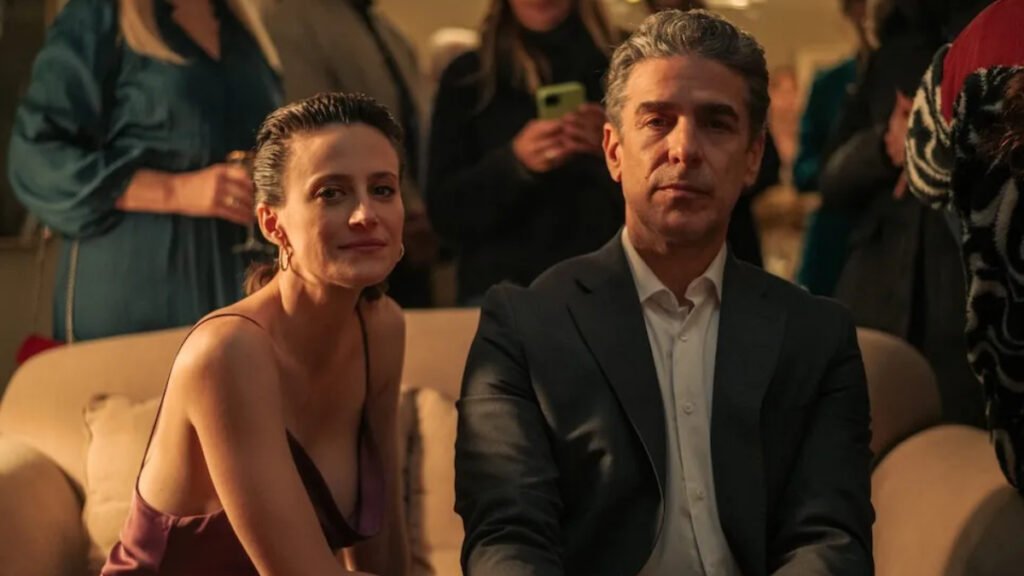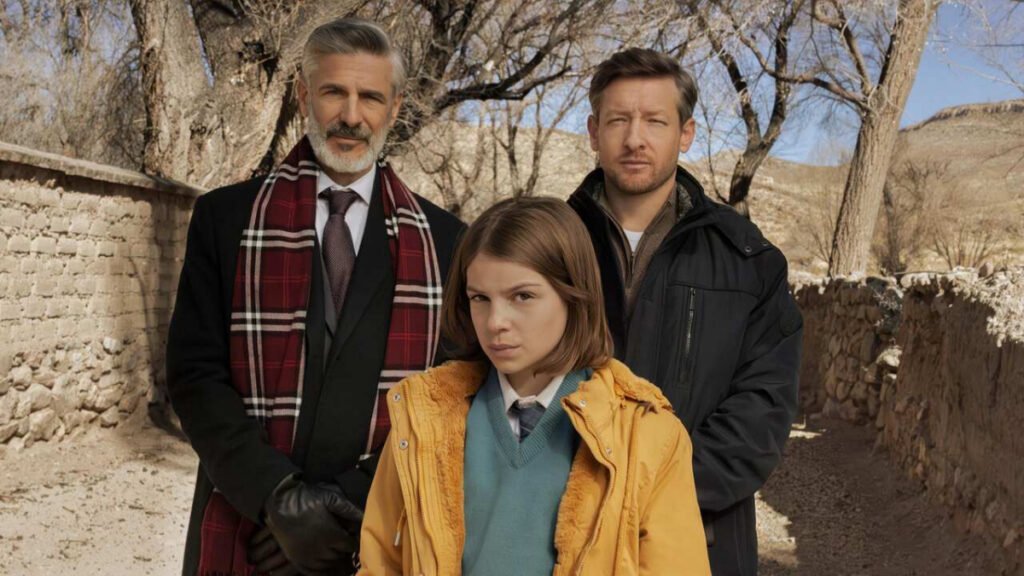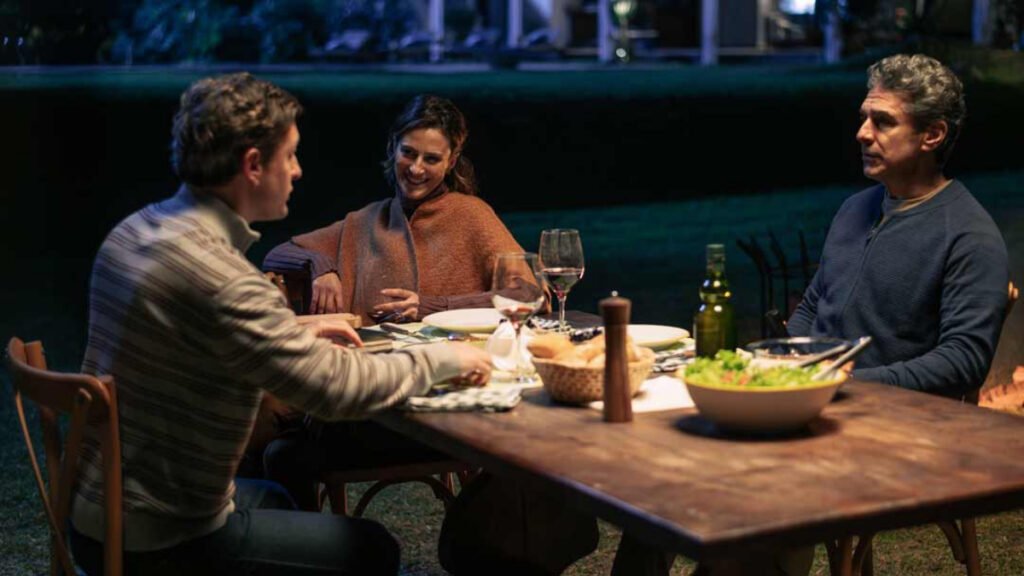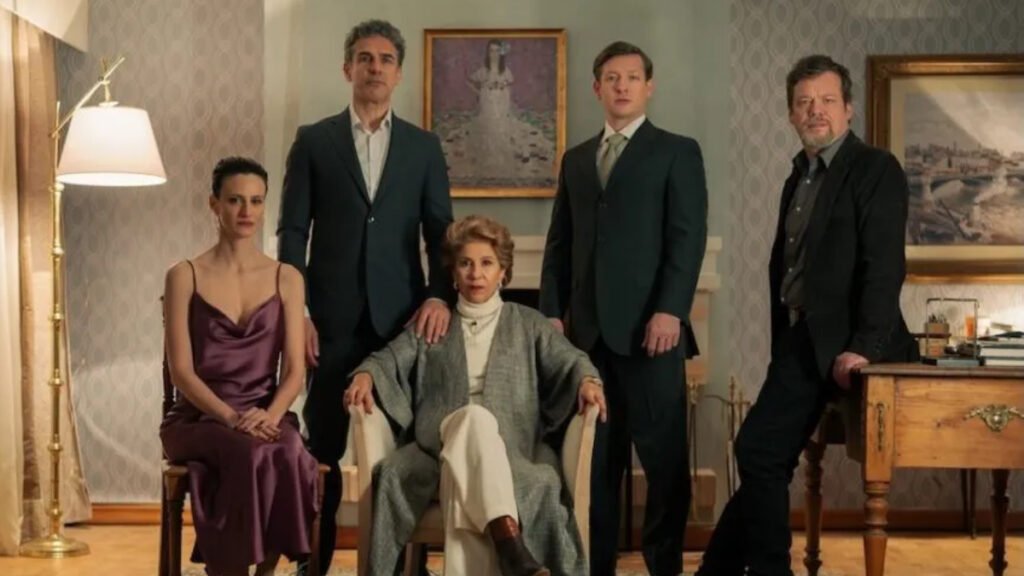Maledictions Review

Director: Daniel Burman and Martín Hodara
Date Created: 2025-09-13 03:10
2
Maledictions Review: Directed by Daniel Burman and Martín Hodara, this three-episode Argentinian Netflix series is based on Claudia Piñeiro’s novel Las Maldiciones. The drama follows Roman Sabaté (Gustavo Bassani), a former devoted right-hand man to Governor Fernando Rovira (Leonardo Sbaraglia). Roman takes the stunning step of kidnapping Zoe (Francesca Varela), whom all assumes to be Fernando’s daughter. The series then weaves political storylines, environmental debates, and family secrets together into a brief and complicated narrative. The supporting cast features Emiliano Kaczka as Rogelio Vargas and Alejandra Flechner as Fernando’s conniving mother, Irene.
The Argentinian series Maledictions has a lot to deliver: a political strategist in conflict with his mentor, family secrets and loyalty, and the backdrop for a contentious fight over natural resources. The question is, though—does the series stay loyal to all these layers in three episodes?
Maledictions Review
One of the strongest aspects of Netflix’s Maledictions is putting politics front and centre in personal lives. More than anything else, the series is about how ambition warps relationships rather than a kidnapping. The outrage at a water bill that would serve the environment but cut back on lithium mining is also timely, with arguments concerning climate change being minimised at present. As a viewer, I could respect that the series attempted both arguments: economic potential versus the bill a few years later for communities.

Another strength is the acting of Alejandra Flechner as Irene. While she is not on screen for the longest period of time, she dominates every single scene that she is in. Manipulative, icy, and almost sinister in her games with her son Fernando’s career, Irene was a blow-by-blow joy to observe behind the scenes as opposed to the central drama between Roman and Fernando. If the creators had given Irene’s perspective more focus while constructing the narrative, in my personal view, they could have constructed a much-improved narrative out of it.
I also appreciated the thematic focus on parenting. The show repeatedly asks the question of what a parent is: biology, obligation, or power? The tension between Roman’s engagement in Zoe’s life and Fernando’s desire for political authority shows the tendency for kids to be tokens in adults’ games. That resonated with me for the mere fact that the story was brought down to something inherently human outside of the politicking.

Whatever intriguing ideas its narrative may have, Maledictions’ writing didn’t impress me. Most maddening is its build. With only three episodes, the series rushes and feels unfinished. Rather than gradually adding height to the political and personal stakings, the narrative careens out of control. The significant scenes—the family tragedy that happens to Roman or the specifics of Lucrecia’s assassination—are mere suggestions and not explored. On the other hand, the show wastes precious minutes on long flashbacks and fill scenes which have no use.
Also Read: You and Everything Else Review: Deeply Emotional Journey of Love, Loss, and Complicated Friendships
Because of its bumpy pacing at times, I was confused, not so much that the story was too complex, but the fractured way the story is told. It was as if they could not decide whether to make a feature out of these stories or an actual miniseries. The result is something stuck in the middle, and both the actor and audience are shortchanged.

Acting is again a mixed bag. Gustavo Bassani as Roman cannot muster enough conviction to get us to believe in his despair and his reasons. Leonardo Sbaraglia as Fernando is more convincing, although his character and Bassani’s never quite catch fire. Francesca Varela as Zoe is adequate, although the character isn’t developed sufficiently to be remembered. The one who again just stands out above the rest is Flechner as Irene, who duplicates and just overwhelms the rest.
In terms of visuals, the Maledictions series isn’t striking either. There are some sweeping shots of the Argentine landscape that are lovely, but a lot of the cinematography is flat. I hoped and hoped that the series would make its visuals matter and play a role in the drama, but for the most part, it follows a boring and bland route.

Without revealing too many spoilers, I will merely state that the series Maledictions’ climax combines the outrage regarding the bill for the water with Zoe’s real parentage. It attempts to have one message on one level concerning truth, responsibility, and abandoning corruption. On a different level, it fails in that the conclusion feels rushed, and the writers were most probably working against time. As much as I did like the ultimate reveal of more family secrets, I did not experience the emotional denouement that was intended. The ideas are present, and yet the ending doesn’t feel particularly significant.
Netflix Maledictions Review: Summing Up
Overall, I admire that this Argentinian drama engages with political corruption, environmental guilt, and brother-sister power struggles. The three-part structure just does not provide enough wiggle room to flesh out these heavy subject matters. Maledictions falls pretty comfortably into the “good idea, lousy execution” category for me. It could have quite easily been a great movie or a show. It hovers about uncomfortably in between, offering tantalising glimpses of greatness that never fully materialise.
Also Read: The Wrong Paris Review: Fun, Light-hearted, and Predictable but Still Charming
